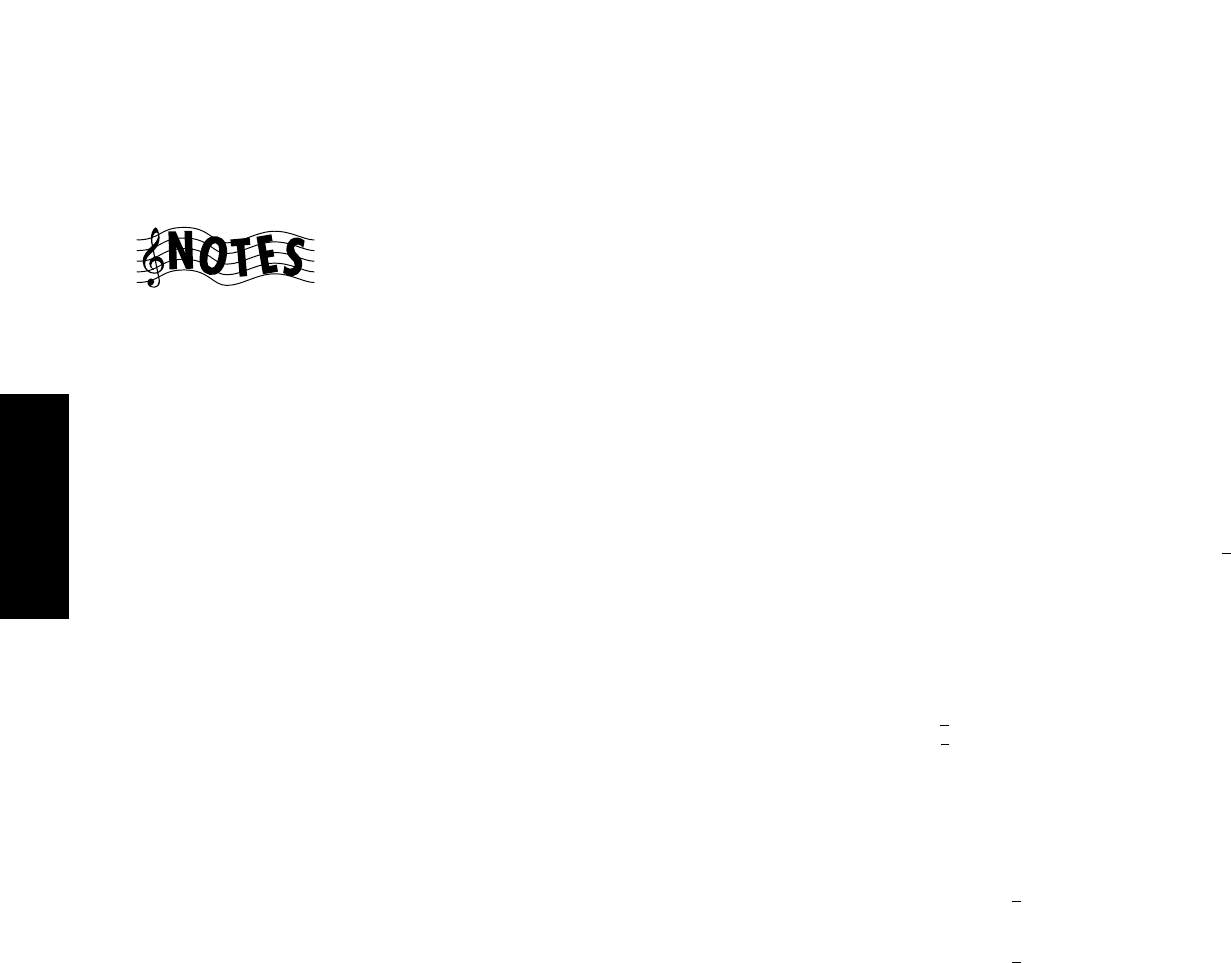
42
Specifications
Chapter Three : Warnings and Specifications Audio-Video Receiver KRF-X9992D
Video Section
Video Inputs / Outputs
Video (composite) .............................................. 1 Vp-p / 75 Ω
S Video ( luminance signal) ............................... 1 Vp-p / 75 Ω
(chrominance signal) ....................0.286 Vp-p / 75 Ω
FM Tuner Section
Tuning Frequency Range ............................87.5 MHz ~ 108 MHz
Usable Sensitivity (DIN)
Mono ......1.2 µV (75 Ω) / 13.2 dBf (40 kHz dev., S/N 26 dB)
Stereo ....... 45 µV (75 Ω) / 44.2 dBf (46 kHz dev., S/N 46 dB)
Total Harmonic Distortion (DIN at 1 kHz)
Mono .................................................... 0.2 % (65.2 dBf input)
Stereo ....................................................0.8 % (65.2 dBf input)
Signal to Noise Ratio (DIN weighted, 1kHz)
Mono .............................. 65 dB (40 kHz dev., 65.2 dBf input)
Stereo .............................. 60 dB (40 kHz dev., 65.2 dBf input)
Stereo Separation (DIN at 1 kHz) ...................................... 36 dB
Selectivity (DIN,
+300 kHz) .............................................. 64 dB
Frequency Response ................. 30 Hz ~ 15 kHz, +0.5 dB, -3.0 dB
MW (AM) Tuner Section
Tuning Frequency Range ............................ 531 kHz ~ 1,602 kHz
Usable Sensitivity (30 % mod., S/N 20 dB)
............................................................................16 µV / (600 µV/m)
Signal to Noise Ratio (30 % mod. 1 mV input) ................. 50 dB
General
Power consumption........................................................... 600 W
AC outlet
Switched .................................................. 2 (total 100 W max.)
Dimensions ................................................ W: 440 mm (17-5/16”)
H : 162 mm (6-3/8”)
D : 391 mm (15-3/8”)
Weight (Net) ...................................................... 15.2 kg (33.5 lb)
Chapter Three: Specifications
Read this page carefully to ensure safe operation.
KRF-X9992D Specifications
Audio Section
Rated Output Power during stereo operation
63 Hz ~ 12.5 kHz, 0.7 % T.H.D. , 6 Ω (DIN/IEC)
...........................................................................130W + 130 W
Effective Output Power during surround operation
Front
1 kHz, 0.06 % T.H.D. at 6 Ω, one channel driven
..........................................................................130 W + 130 W
Center
1 kHz, 0.06 % T.H.D. at 6 Ω, one channel driven ........ 130 W
Surround
1 kHz, 0.06 % T.H.D. at 6 Ω, one channel driven
..........................................................................130 W + 130 W
Total Harmonic Distortion...............0.004 % (1 kHz, 65 W, 6 Ω)
Frequency Response (IHF’66)
CD1...........................................5 Hz ~ 80 kHz, +0.5 dB, -3 dB
Signal to Noise Ratio (IHF ‘66)
Phono (MM) ................................................................... 76 dB
CD1................................................................................... 96 dB
Input Sensitivity / Impedance
Phono (MM) .................................................... 2.5 mV / 47 kΩ
CD1..................................................................200 mV / 47 kΩ
6ch input .........................................................200 mV / 47 kΩ
Output Level / Impedance
Tape Rec........................................................... 200 mV / 220 Ω
Pre Out (Front, Center, Surround, Subwoofer).....1 V / 500 Ω
Tone Control
Bass .............................................................
+ 7 dB (at 100 Hz)
Treble ..........................................................
+ 7 dB (at 10 kHz)
Loudness Control
Volume at -40 dB level......... +7 dB (100 Hz), +4 dB (10 kHz)
Digital Audio Section
Sampling Frequency ............................32 kHz, 44.1 kHz, 48 kHz
Input Level / Impedance / Wavelength
Optical ......................... -15 dBm ~ -21 dBm, 660 nm
+30 nm
Coaxial..............................................................0.5 Vp-p / 75 Ω
Output Level / Impedance / Wavelength
Optical ......................... -15 dBm ~ -21 dBm, 660 nm
+30 nm
NOTE: Do not use contact cleaning agents because
they could cause a malfunction. Be especially careful
not to use contact cleaning agents containing oil,
since they may deform the plastic components.
Kenwood follows a policy of continuous advance-
ments in development. For this reason, specifica-
tions may be changed without notice.
Full performance may not be exhibited in extremely
cold locations (below 0 deg. C).


















